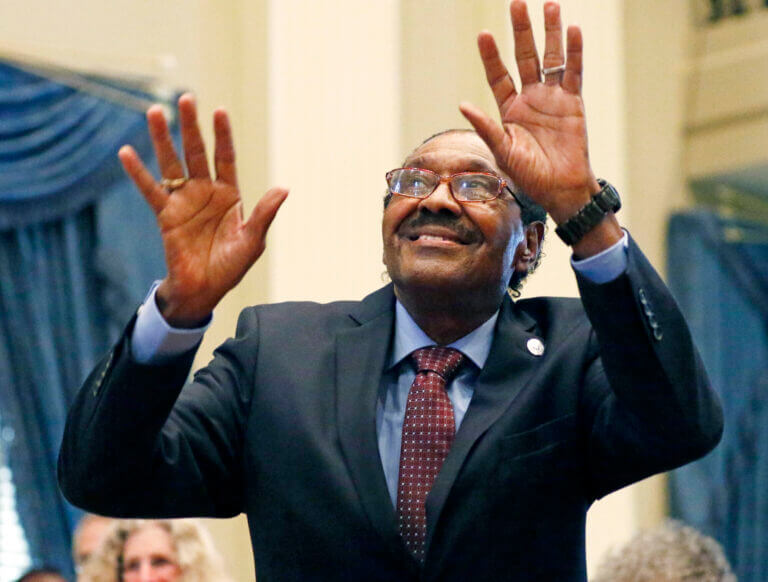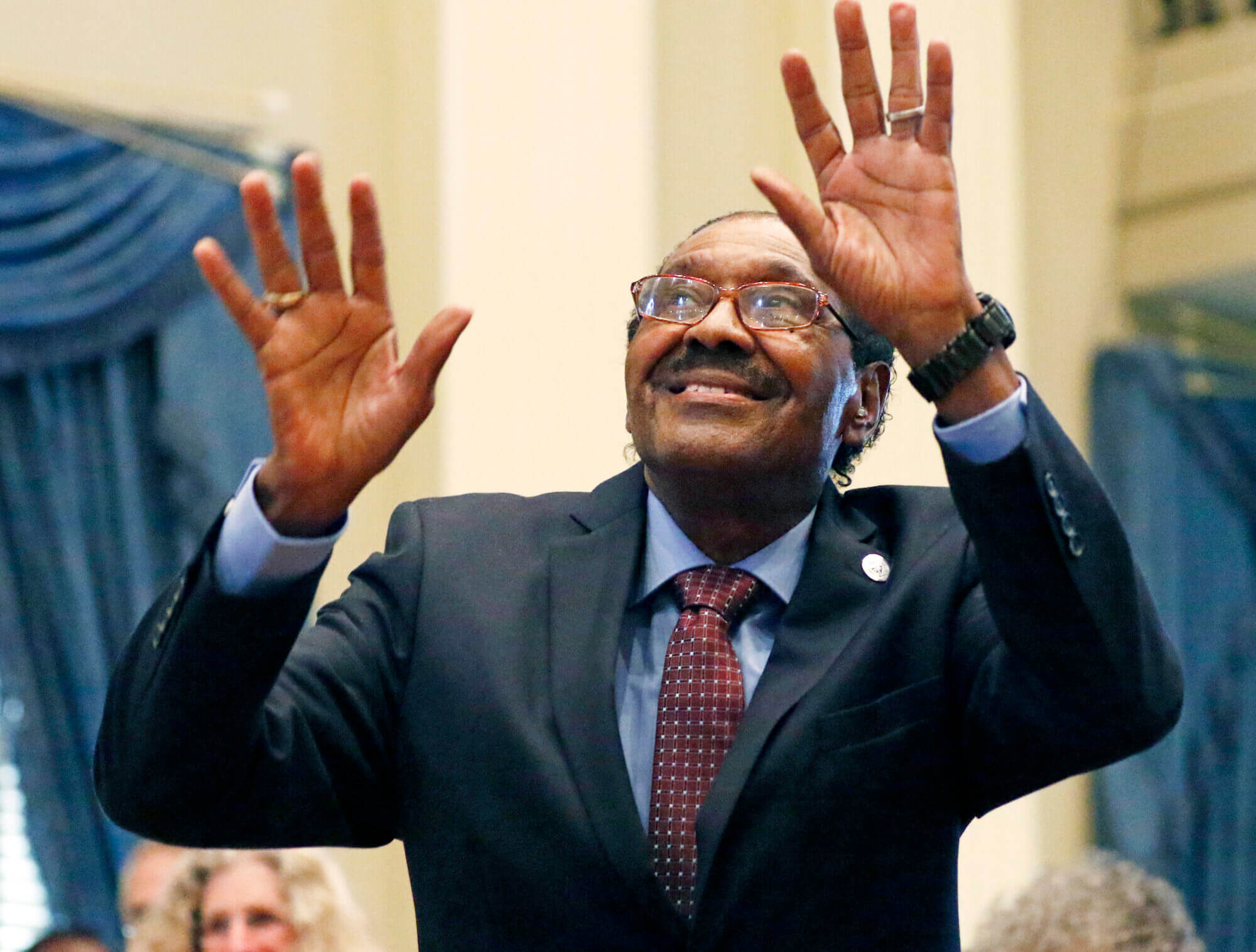

Editor’s note: Historian Derrion Arrington reflects on early positions taken by Robert Clark, who in 1967 became the first Black Mississippian elected to the state Legislature in the 20th century, and how those issues championed by Clark are being addressed today.
Mississippi’s struggles with Medicaid are deeply tied to the state’s broader history of social, racial and political tension.
When President Lyndon Johnson established Medicaid nationally in 1965, it marked a landmark federal expansion to provide health care for low-income Americans. The program coincided with sweeping civil rights reforms, placing the provision of basic health care at the center of debates about equality, federal authority and social justice.
In Mississippi, resistance to Medicaid reflected long-standing patterns of political conservatism, racial segregation and apprehension toward federal oversight. Many state leaders feared that expanding social programs would upset the established social hierarchy and erode local control. Southern governors repeatedly requested delays in implementation, citing concerns about raising funds and securing legislative approval, while conservative lawmakers warned against what they framed as a slippery slope toward socialism.
Amid this climate, state Rep. Robert Clark Jr., the first Black legislator in Mississippi in the 20th century, emerged as a rare voice insisting that moral imperatives should outweigh political caution. Clark called for a special session to prioritize Medicaid over other state programs, arguing that the needs of Mississippi’s most vulnerable citizens demanded immediate action.

“Before we place any new tax burdens on the backs of poor people, we must do something to help them survive,” Clark declared.
Clark’s proposals were ambitious. He sought to fund Medicaid by reallocating state resources, including defunding the state Sovereignty Commission – a segregationist spy agency that had long promoted racial hierarchies under the guise of preserving state autonomy. He also proposed expanding Medicaid to include welfare recipients who had previously been excluded.
Conservative factions, led by figures such as Sen. W. B. Alexander of Cleveland, opposed these measures vigorously, arguing that Medicaid expansion threatened to increase taxes and represented a form of “government overreach.”
Ultimately, in 1969 Gov. John Bell Williams did call a special session as Clark proposed. It was intense. Legislators debated heatedly, weighing fiscal concerns against human need. At one point, Rep. Sterling Seabrook collapsed on the House floor, a stark illustration of the session’s tension.
Despite the opposition, the Medicaid bill passed the House 79-34 and later secured Senate approval on Aug. 7, 1969. Mississippi, though late to the program, became the second-to-last state to implement Medicaid — a testament to the persistence of advocates like Clark, who fought to protect the state’s most marginalized residents.
This episode established a pattern that would endure for decades. Medicaid and other social programs in Mississippi were repeatedly subjected to political compromise, delay and retrenchment. Welfare reform in the 1990s introduced work requirements and time-limited benefits, disproportionately affecting Black and low-income communities.
Starting in 2010, Mississippi has repeatedly rejected Medicaid expansion under the Affordable Care Act, leaving hundreds of thousands without coverage and cementing structural gaps in health access.
The historical arc of Medicaid in Mississippi demonstrates a fundamental tension between the ethical imperative to protect vulnerable populations and the political pressures to restrict government programs. Each policy decision, delay or rollback reverberates through communities, shaping health outcomes, economic opportunity and intergenerational equity.
The battles of 1969 are not distant history. They are a lens for understanding contemporary struggles over access, equity and the moral responsibilities of government.
The 2025 policy context
More than five decades after Clark’s advocacy, Mississippi faces another high-stakes battle over public health coverage. In July 2025, the federal government enacted what supporters labeled the “One Big Beautiful Bill,” a sweeping package that significantly reduces Medicaid and Supplemental Nutrition Assistance Program funding.
While the bill – now law – was framed as a measure to promote fiscal efficiency and personal responsibility, public health experts warn its provisions could have profound consequences for the state’s most vulnerable populations. The law imposes work or community engagement requirements for Medicaid recipients aged 19 to 64, tightens SNAP eligibility and reduces overall Medicaid spending by 12%.
Proponents argue the reforms encourage self-sufficiency and reduce federal spending, yet in a state like Mississippi – where poverty is widespread, rural infrastructure is limited and access to health care is already precarious – the practical effects are stark. Analysts estimate tens of thousands could lose coverage and critical nutritional support, amplifying structural inequities that have persisted for generations.
The Mississippi Legislative Black Caucus convened a hearing in September to examine the fallout. Lawmakers, researchers and advocates warned that the federal law threatens health outcomes, workforce stability and community well-being. Nearly 1 in 5 Mississippians lives below the federal poverty line, and the state ranks among the worst nationwide for maternal mortality, chronic disease management and child nutrition. For these communities, Medicaid and SNAP are lifelines, not abstractions.
Dr. Laila Henderson of the University of Mississippi Medical Center testified: “Policy is never abstract. It determines who lives and who suffers. Cutting Medicaid coverage for working families destabilizes entire communities.”
The debate over the federal law also highlights the persistent tension between federal mandates and state autonomy – a tension that has shaped Mississippi’s social welfare history. Just as Southern governors in the 1960s delayed Medicaid citing funding and legislative concerns, modern leaders navigate the pressures of balancing political priorities, federal requirements and urgent public needs.
Looking forward: A moral imperative
The struggle over Medicaid in Mississippi is both a continuation of a decades-long battle and a reflection of enduring questions about the role of government in protecting its most vulnerable citizens.
From Robert Clark’s 1969 advocacy to the debates surrounding the “One Big Beautiful Bill” in 2025, the state has repeatedly confronted the tension between political priorities and moral responsibility. Clark framed Medicaid not as a political program but as a matter of survival and justice.
“There’s no need for babies to continue to suffer for lack of medical attention,” he said.
This ethos remains urgent. Today’s policymakers face the consequences of decades of delayed or restricted programs. The cuts in the 2025 federal legislation threaten to widen health disparities, destabilize families and strain fragile rural and urban infrastructures.
The moral question is clear: Will Mississippi once again prioritize political expediency over human need, or will it act decisively to protect access to essential services?
The stakes are both ethical and practical. Reductions in coverage jeopardize public health, weaken the workforce and threaten economic stability. They exacerbate cycles of poverty and inequality that have long defined Mississippi’s social landscape.
Conversely, expanding access to Medicaid and SNAP strengthens communities, stabilizes local economies and promotes intergenerational equity – the very goals Robert Clark championed more than 50 years ago.
Ultimately, the fight over Medicaid is a measure of Mississippi’s values. Clark died earlier this year. His legacy reminds contemporary leaders that social programs are not merely budgetary line items. They are lifelines that define the character and conscience of the state.
As Mississippi navigates the 2025 policy landscape, the state faces a choice: continue a legacy of resistance that leaves vulnerable populations at risk or embrace a vision of governance that prioritizes care, equity and moral responsibility.
The stakes are profound, the consequences tangible and the opportunity to act morally and decisively is as urgent as it was in 1969.
Bio: Derrion Arrington is an award-winning historian from Laurel and a graduate of Tougaloo College. He currently works for the ACLU of Mississippi. Arrington is also the author of two books: “Standing Firm in the Dixie: The Freedom Struggle in Laurel, Mississippi” and the forthcoming work, “Robert Clark: The Rise of Black Politics in Mississippi.”
- State fire marshal is investigating troubled Unit 29 at Parchman prison - February 26, 2026
- Mississippi’s Winter Storm Fern losses exceed $107 million, state insurance department says - February 26, 2026
- DNA evidence linked to a Greenville homicide is missing. Now the finger-pointing begins - February 26, 2026